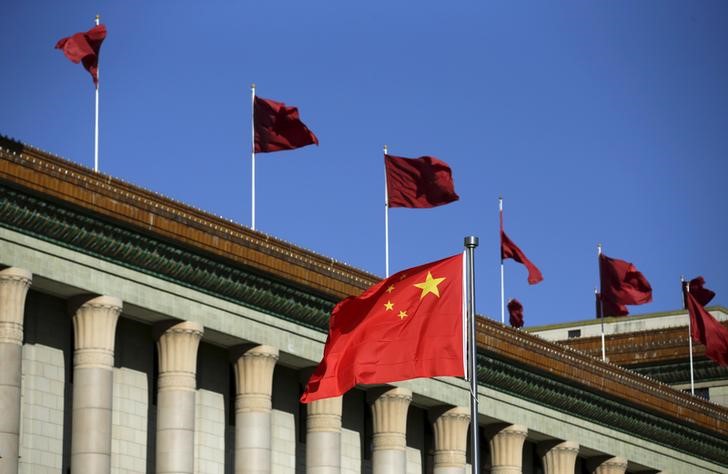Investing.com -- Wells Fargo (NYSE:WFC) now forecasts that China's economy will grow 4.6% in 2024, a downgrade from the earlier estimate of 4.8% and below the government's official 5% target.
The bank’s economists believe that despite recent policy support from Chinese authorities, these measures are not sufficient to address the deeper structural challenges faced by the economy. They highlight that China’s growth remains hampered by a subdued property market, weak domestic consumption, and deflationary pressures, with consumer confidence remaining low.
Chinese policymakers have introduced several measures aimed at shoring up the property sector and stimulating growth, including lowering lending rates and reducing the reserve requirement ratio for major banks. Yet, according to Wells Fargo, these policies are unlikely to significantly change the economic trajectory.
“Directionally speaking, easier monetary policy and support for the property sector is an appropriate course of action; however, we believe the recent announcements are not a cure for China's growth challenges,” economists said in a note.
“As far as property sector support, we believe Chinese consumers are unwilling to direct capital toward real estate at the current juncture, given the sharp and ongoing downturn in the industry,” they added.
Further complicating the economic outlook is China’s monetary policy. Wells Fargo points out that the People’s Bank of China (PBOC) has been in easing mode for some time, but these actions have not been able to ignite economic activity.
Specifically, real interest rates in China remain positive and restrictive. Economists said the "gradual easing of monetary policy that maintains restrictive monetary policy settings will continue to act as a drag on China's economy for the time being.”
In terms of fiscal policy, Wells Fargo notes the limited role it has played in recent years. While China deployed substantial fiscal stimulus in past crises, such as during the Global Financial Crisis, fiscal support has been relatively absent in the post-COVID era.
The report suggests that Chinese authorities may be hesitant to increase fiscal stimulus due to the country's high debt burden and concerns that households would opt to save rather than spend any stimulus, particularly in the current deflationary environment.
Looking ahead, Wells Fargo expects China’s economic growth to slow further in 2025, forecasting a modest 4.3% growth rate.
